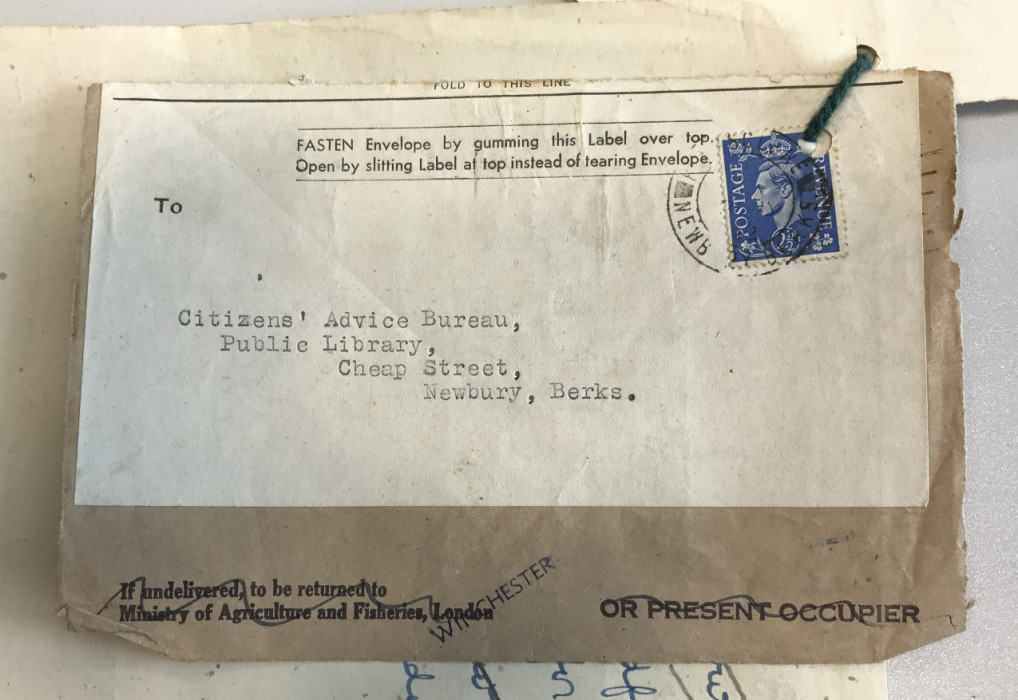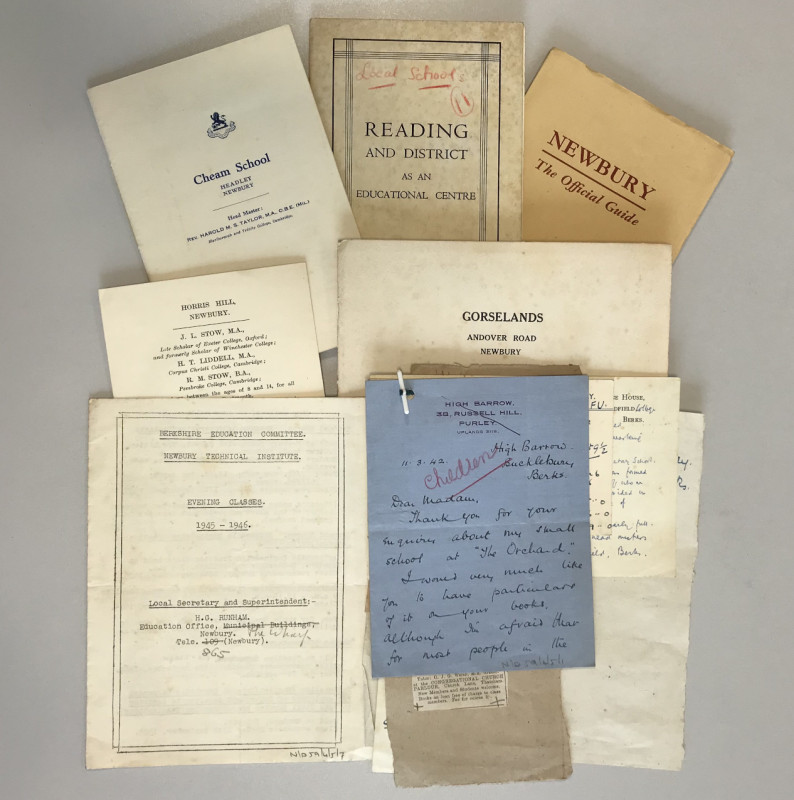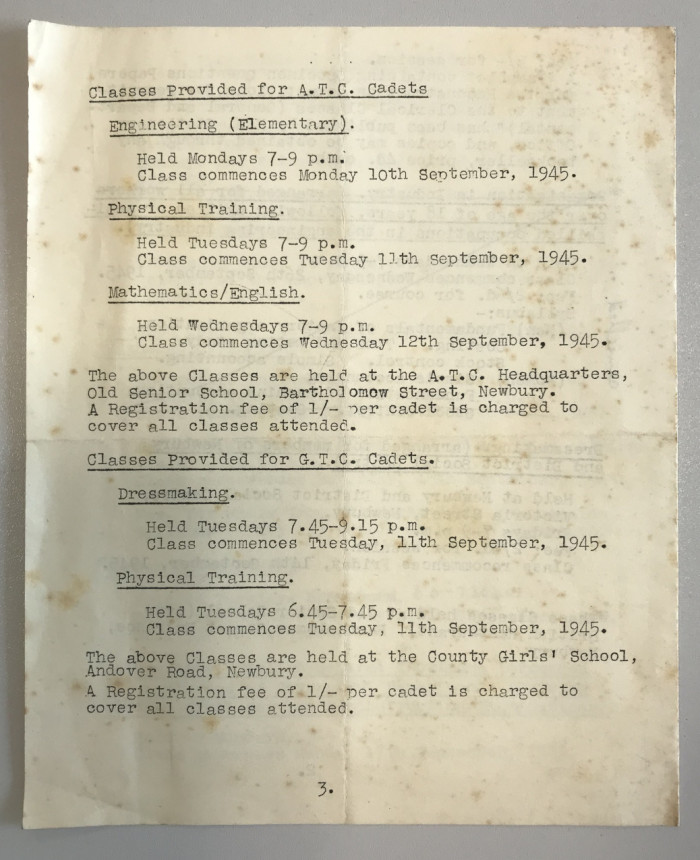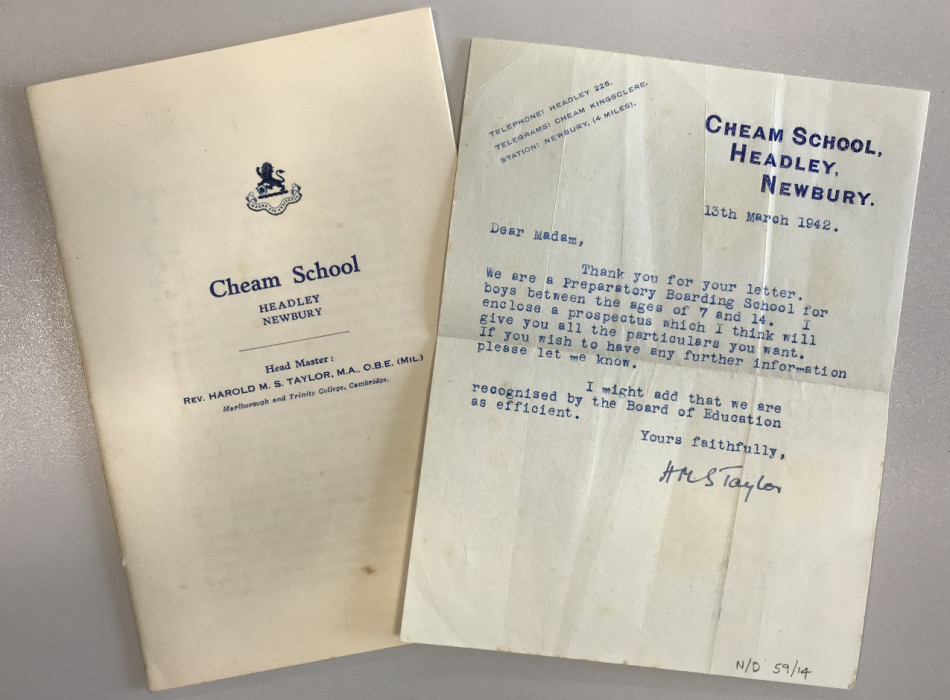From the Pianoforte to the French Revolution: Education in Wartime Newbury
Within the Newbury Borough collection, there is a small series of records created by Newbury’s Citizens Advice Bureau (CAB) during its early years in the 1940s (ref. N/D59/4/5/1-8). This highlight looks at a CAB file on educational establishments in and around Newbury, dated 1942-1946.

The nation's first bureaux opened on 4 September 1939, four days after the start of the Second World War. This branch, based in the Public Library, was established in 1940 jointly by Newbury Borough and Newbury Rural District Council. Initially most enquiries that were received typically related to wartime conditions, seeking work, and legal matters. A history of the nationwide CAB services can be found online.
This particular file was compiled by Newbury’s CAB so that they could provide the most up-to-date advice on local education. It contains illustrated booklets with information about schools in the Reading and Newbury areas, correspondence with institutions, prospectuses and newspaper clippings. This gives a snapshot of the local learning opportunities that were available at the time, ranging from schools, colleges and University of Reading, to private music lessons and evening classes.

The correspondence covers a wide variety of schools. There is a note from Sycamore Trees Kindergarten, Enborne Road, Newbury, outlining their small school for boys and girls aged 4-10 years old which was ‘run on progressive lines’ with special attention given to painting, music and craftwork. Alternatively, a letter from 1942 shares the news of the founding of a new Girls’ Preparatory School for 20 pupils in a cottage on the grounds of Bradfield College with access to their facilities.
The cuttings from newspapers reveal that Miss Iris Brooks of Southwood Lodge, Newbury, offered lessons on all branches of dance, from Greek to Classical, whereas Miss G. Haynes-Chivers of 48 Greenham Road, Newbury, provided tuition for pianoforte (matthay method).
Members of the Workers’ Educational Association could take evening classes on ‘The French Revolution and its Legacy’ with the Thatcham Branch in 1945. Elsewhere, Newbury Technical Institute taught lessons in engineering and mathematics for A.T.C. [Air Training Corps] cadets and dressmaking for G.T.C. [Girls Training Corps] cadets, with physical training for both.

The papers also include a prospectus for Cheam School dated 1942. The school is in Headley, Hampshire which is close to the county border and only four miles from Newbury. Originally in Cheam, Surrey, the school moved to its current site on the Beenham Court estate, in 1934.
Cheam school, which continues today, counts royalty in its alumni. Prince Philip was educated there from 1930 to 1933 and King Charles was a pupil from 1958 to 1962 before his move to be educated in Scotland. Although the prospectus is dated 16 years prior to his arrival, it does provide some insight into what school life may have been like for Charles. It is described as a Preparatory Boarding School for boys between ages 7 and 14. The estate encompassed 341 acres affording "complete seclusion" for work and games with accommodation for 60 boys. It explains that these grounds provided "ample opportunities for scouting and nature study". It can be assumed that this privacy would have been a big draw for the royal family, and it may have fostered an early love for the natural environment in Charles and the other students.

This seemingly unassuming bundle of papers, created for the CAB volunteers, provides a fascinating glimpse into the wide range of education that was offered in wartime Newbury and the surrounding areas. Education could provide both practical life skills and academic escapism from the challenges that came with living through the Second World War. Education records can be a useful resource for examining the everyday life of citizens at the time. To find out more about the school records held here, please see the downloadable source guides on the website.
